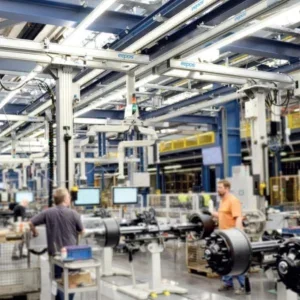Lewis Carroll wrote a wonderful tale called Alice In Wonderland. In this rapidly changing hoist distribution world one might often think about Carroll’s Mad Hatter character who ran about screaming ‘off with their heads’.
Rolling heads include three classes of distribution:
• distribution which refuses to make full use of today’s electronic technology
• distribution too fully committed to end-user alliances and no longer committed to vendor relationships
• distributors locked into relationships with no regard to the future.
Well-managed distribution, large and small, sees opportunities emerging from the dynamics of the marketplace. To understand how individual distributors will survive long-term is difficult. Many distributors lack functional knowledge of integrated supply, the internet, price cutting during good times, globalisation of vendors and vendor reduction relative to their operation. They believe it can’t happen to them.
A profile of the well-managed distributor reveals the following: strong balance sheet, control of inventory assets, diverse customer base, employee training, good communication with vendors and customers, management continuity for future business expansion, use of viable computer software programs and a keen desire to develop vendors’ new products and support tools.
All of these are something to which most management teams will nod ‘yes, we’re doing this stuff’. Unfortunately, this is probably not the case and delusion is actively at work. This is the Mad Hatter’s ‘off with their heads’ group. They say ‘it can’t happen to me!’.
The transparent profile of a dying distributor includes one who neglects any of the above characteristics. The worst case situations are seen through the eyes of a factory representative. That set of eyes sees two additional factors:
• distribution management openly not trying to wrestle with the future
• distributor management not responding to vendor activity designed to permit a vendor to survive.
Ask key factory representatives to check your pulse compared to other distribution in the market. You might be in for some surprises, particularly when you see how small distribution is attacking the future.
Vendor and distributor loyalty does exist today. It is demonstrated, largely, by mutually embracing new technologies to eliminate error, to reduce labour costs and to market products. Are you working with your principals to marry electronic commerce between your firms? Can you communicate electronically?
Down load price books, blueprints, e-mail quotes. Are you up to date on the stated direction of your principals. Do you really know what is happening around you or do you just think that you have a grip on the dynamics of the industry? As an independent distributor or manufacturer, crane builder or repair centre, have you considered aligning yourself with other firms rather than competing against them? Are you better at sales or service? Can you grow more effectively by getting out of segments of your business or by merging, for example?
Are you letting historical brand loyalty get in the way of the reality of the future? Are your vendors’ product designs viable for the future? Are you living on repair parts for equipment that will not exist in 10 years? Are the firms that you represent today ones that will allow you to survive tomorrow? Perhaps 70% of your lines could be replaced today to let you survive tomorrow. Shocking, isn’t it?
When was the last time you did an internal due diligence of your business to see if you would buy yourself? When was the last time you sat down and had a serious discussion with your competitors to evaluate what is going on in your industry? You may come away from a number of competitor interviews wondering where you have been for the past few years. This is particularly true as new global products, concepts and vendors are involving themselves in mature industries such as hoists and cranes. On the other hand, you may have started this process and are pleased to see that prior actions are bearing fruit. This should encourage you to explore the new horizons.
Corporations, unlike individuals, do not have to die. Are you thinking like an individual or like a corporation?






